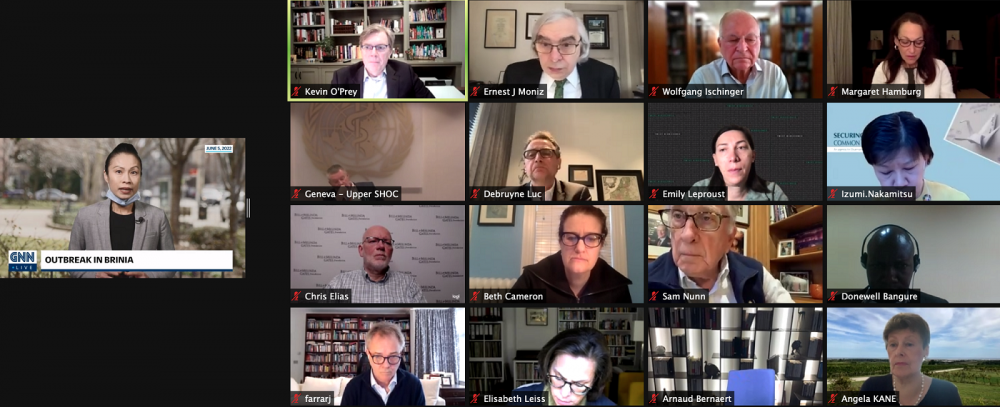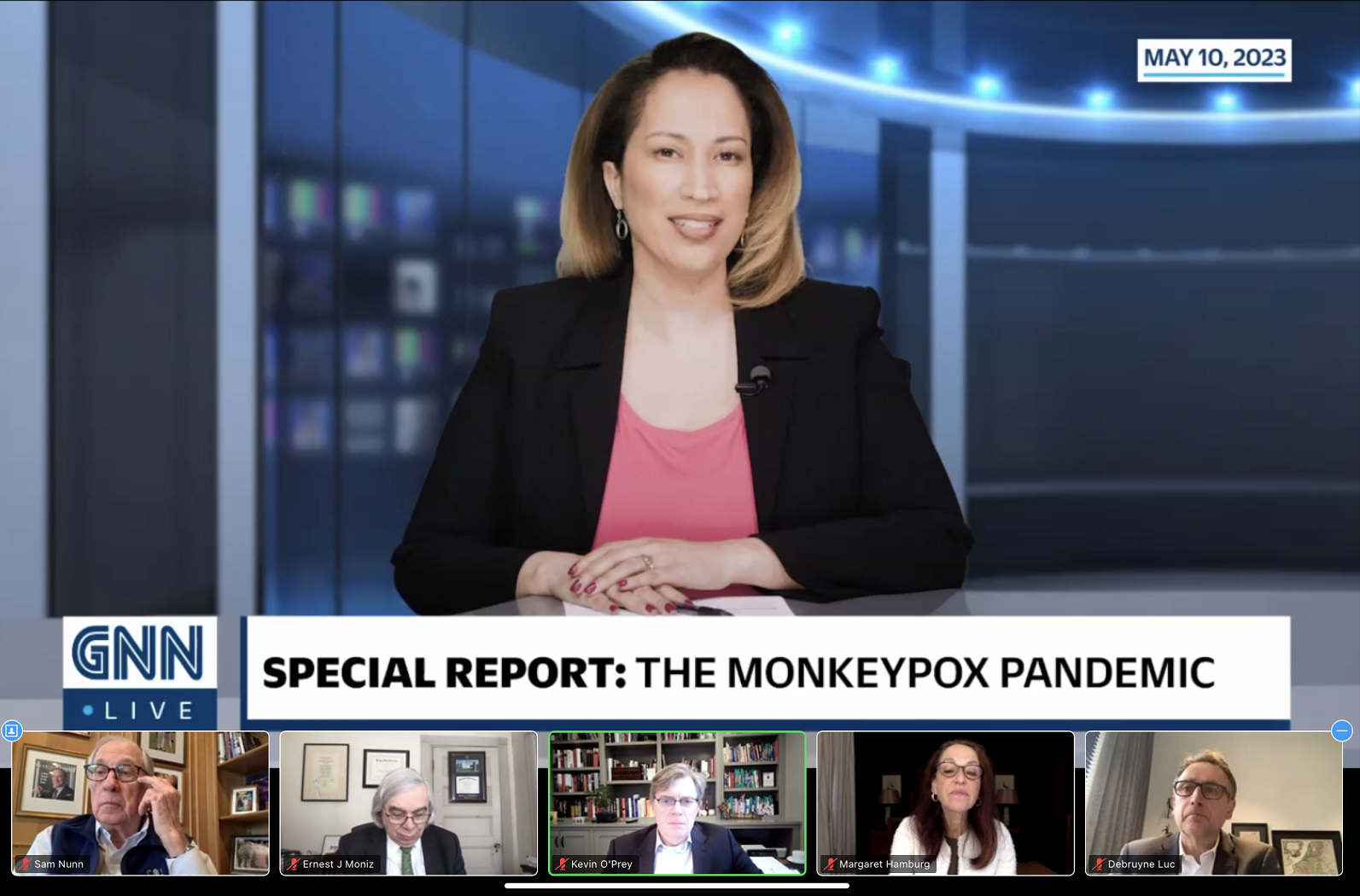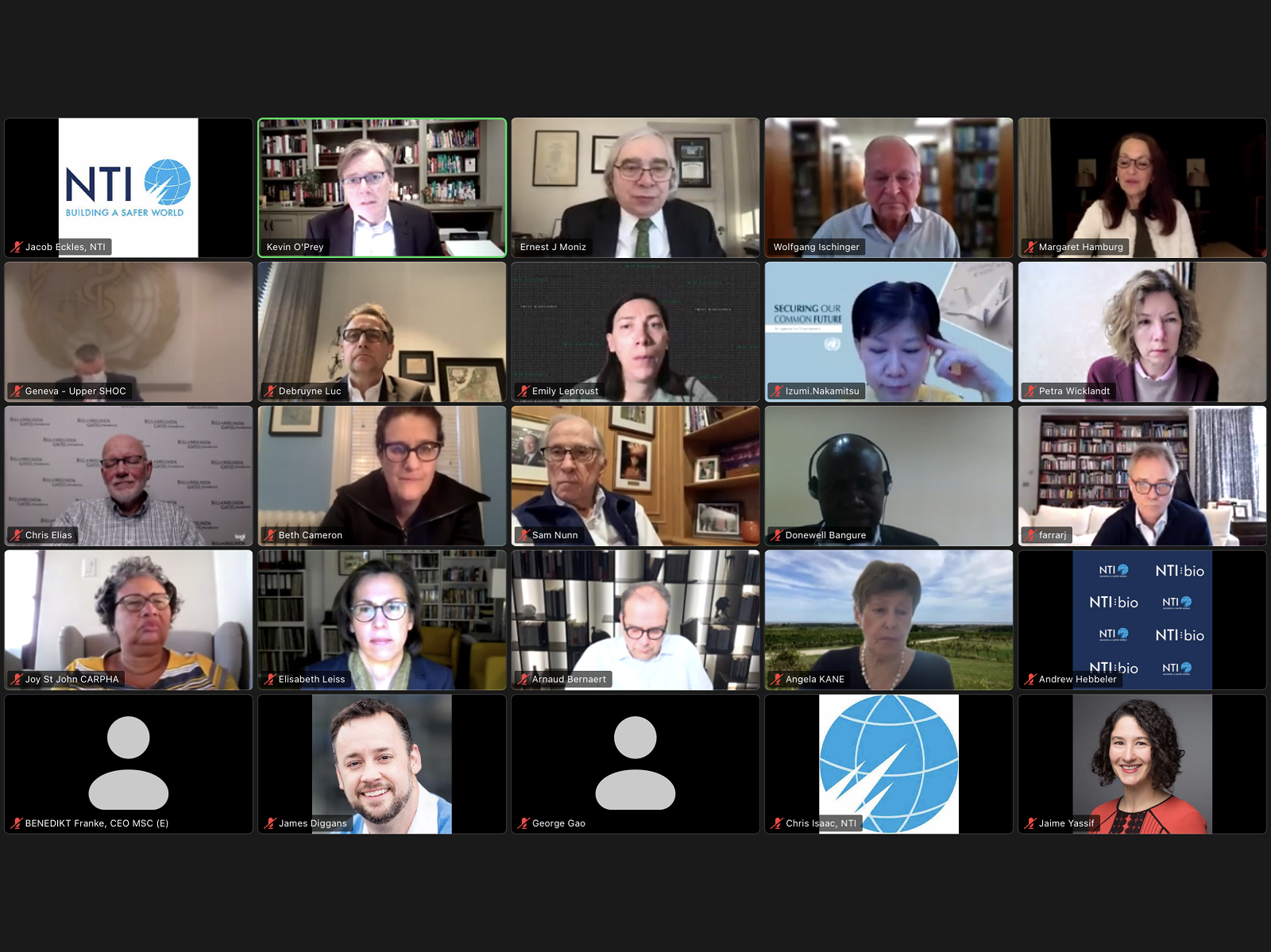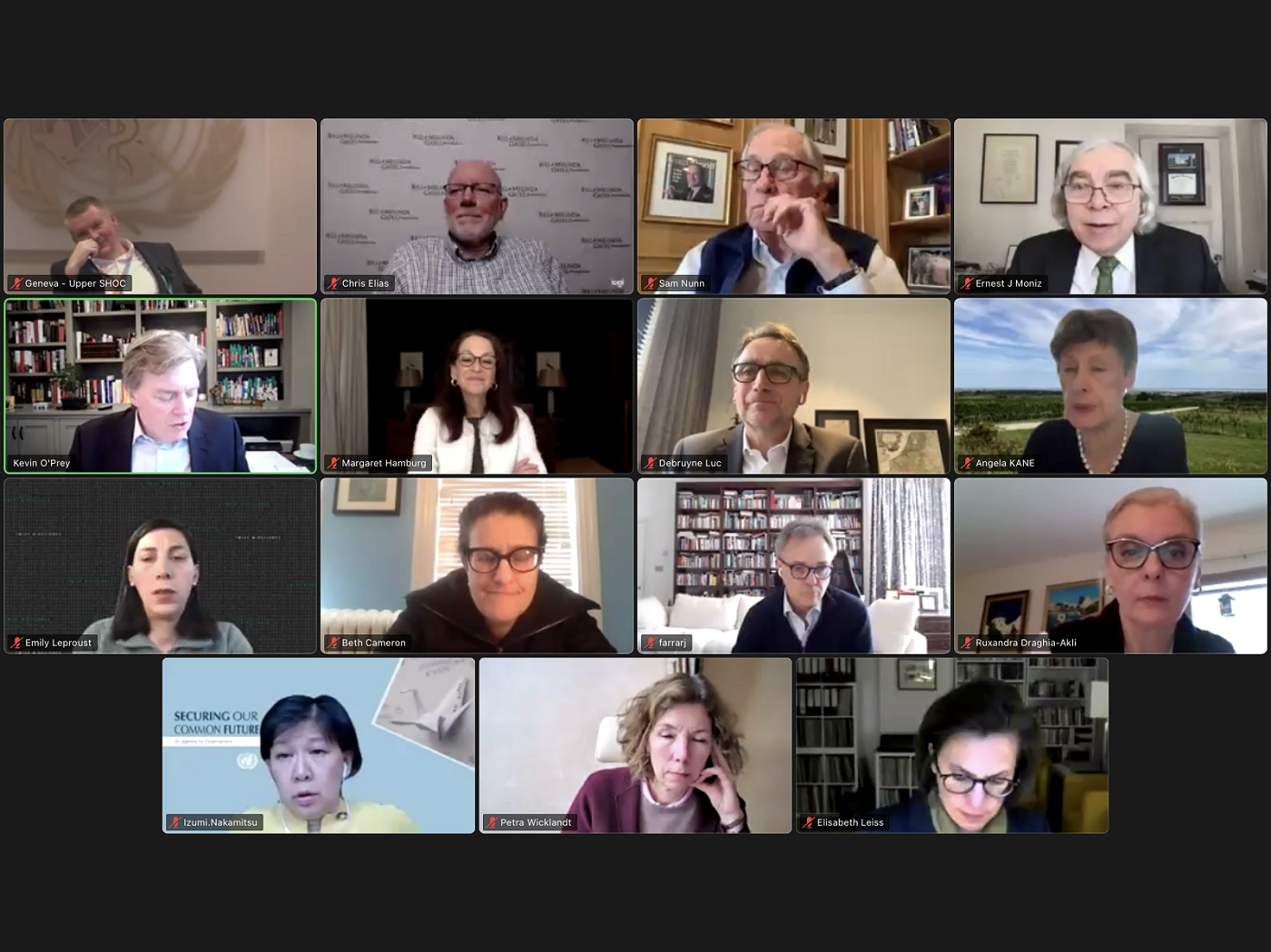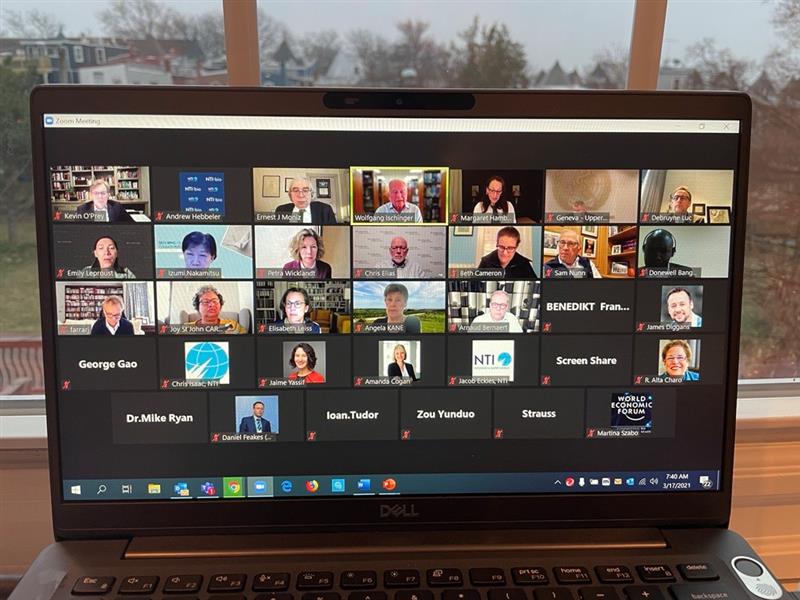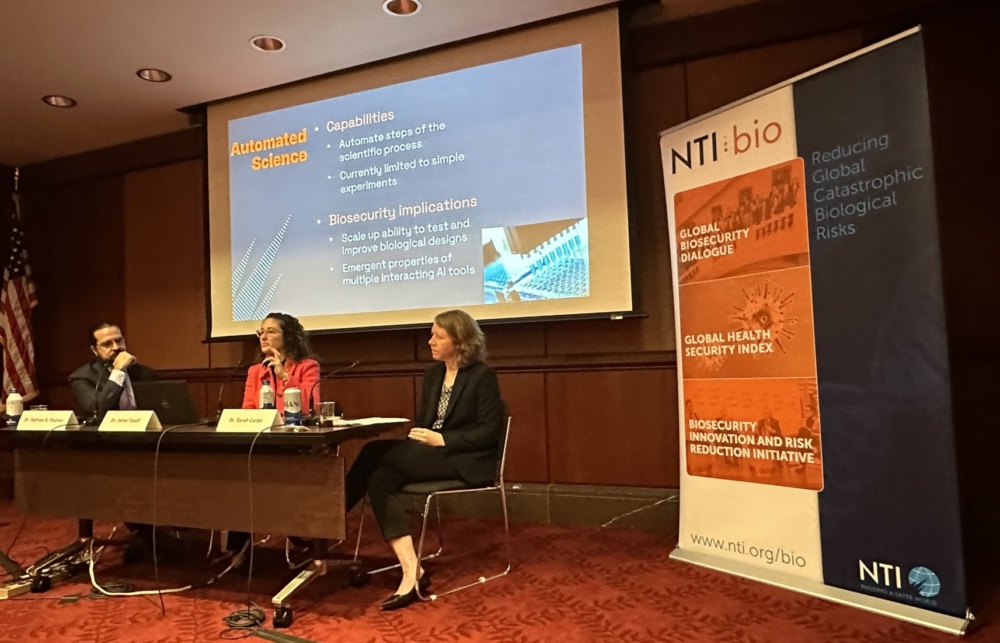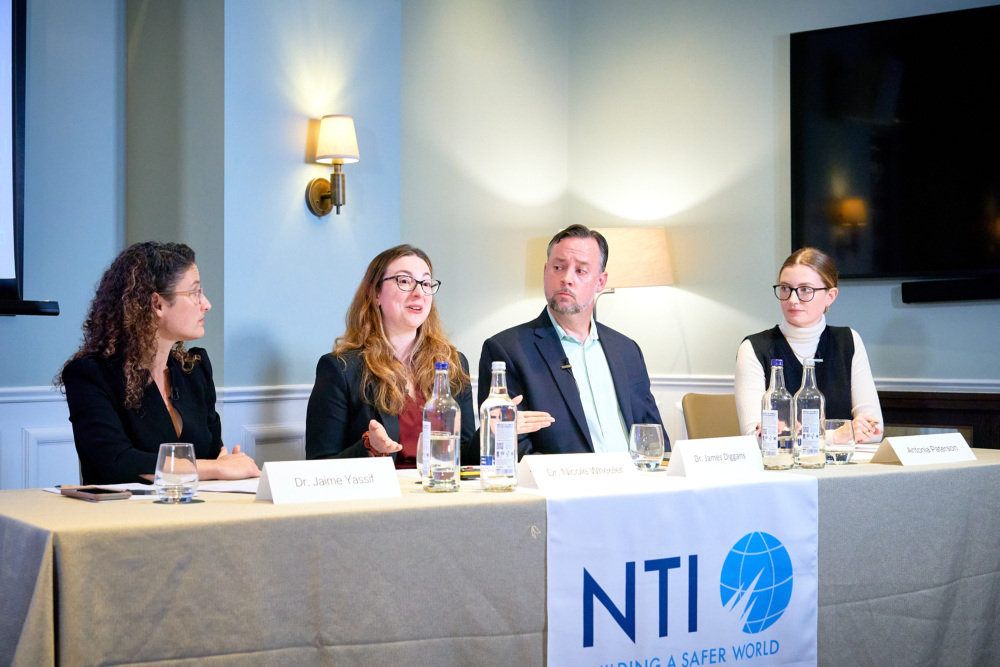NTI Co-Chairman and CEO Ernest J. Moniz and Munich Security Conference (MSC) Chairman Ambassador Wolfgang Ischinger convened 19 current and former global leaders and experts for a March 17, 2021 senior leaders tabletop exercise focused on reducing high-consequence biological threats with potentially catastrophic consequences.
This third annual tabletop exercise organized by NTI’s Global Biological Policy and Programs team (NTI | bio) in conjunction with the MSC is part of the MSC’s “Beyond Westlessness: The Road to Munich 2021” campaign. This effort includes several virtual high-level events and initiatives aimed at advancing the security policy dialogue on priorities for a new transatlantic agenda and laying the groundwork for in-person debates in Munich later in the year. This year’s exercise was conducted on a virtual platform due to the COVID-19 pandemic.
The impact of COVID-19 provided a pressing backdrop for this exercise, as the ongoing pandemic has highlighted weaknesses in the international architecture for preventing, detecting, and responding to pandemic threats. This is an urgent concern because future pandemics could match or exceed COVID-19’s devastating impact in lost lives and shattered economies. Even more concerning is that there are critical gaps in biotechnology oversight that create opportunities for accidental or deliberate misuse with potentially catastrophic global consequences. This was illustrated in the exercise scenario: a localized bioweapons attack with a genetically engineered monkeypox virus begins in the fictional country of Brinia. Over 18 months, the scenario evolves into a globally catastrophic pandemic, leaving 40% of the world’s population infected and over a quarter billion people dead.
The fictional exercise scenario unfolded gradually through a series of short videos that participants reacted to during a facilitated discussion. Key themes emerged regarding the need to strengthen international pandemic risk assessment and early warning systems; to establish clear triggers for national-level anticipatory response and aggressive early action to slow disease transmission and save lives; to reduce biotechnology risks and enhance oversight of life sciences research; and to promote new and stronger international health security preparedness financing mechanisms.
A full report will be published later in 2021. More information about previous exercises can be found in final reports from 2019 and 2020.


